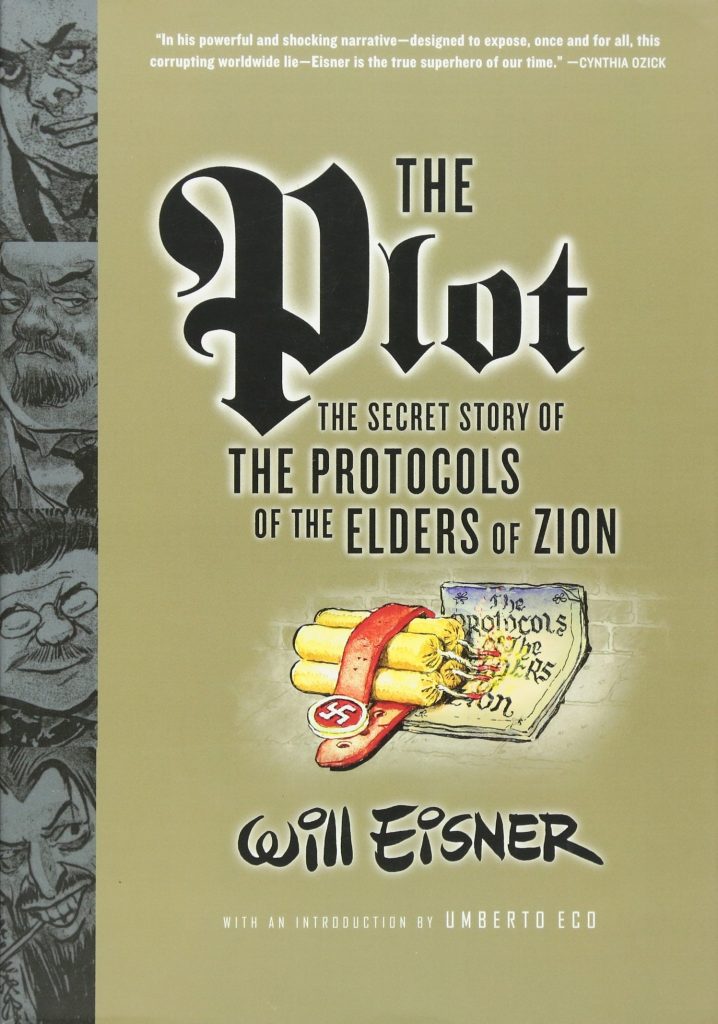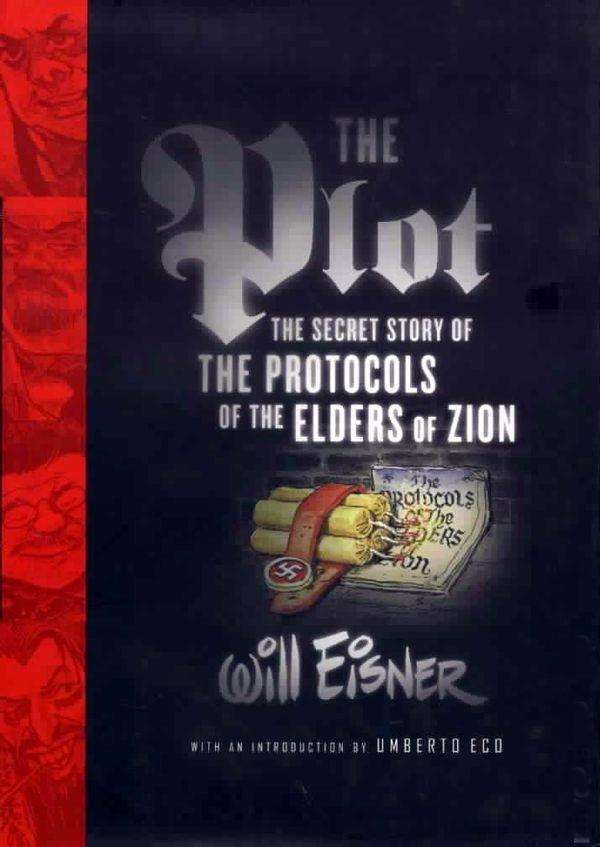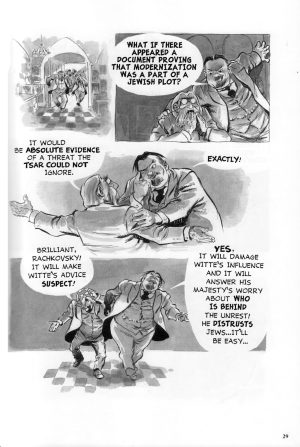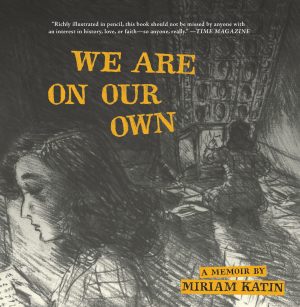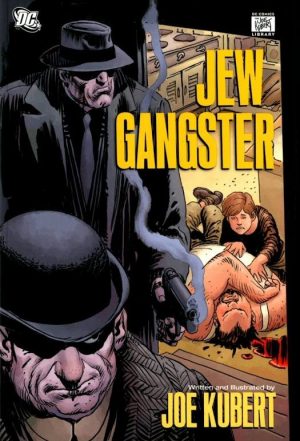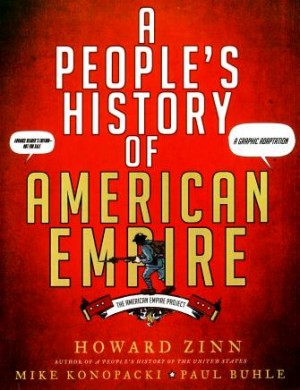Review by Frank Plowright
Will Eisner’s final work is so far removed from everything else he ever produced that were it not for his unmistakeable cartooning it could be the work of a completely different creator.
Ever since the 1978 publication of A Contract With God, Eisner’s graphic novels have been resolutely rooted in Jewish culture, and while they’ve addressed prejudice and racism it’s been in passing, often as historical reference. The Plot is a full-on excoriation of a pernicious piece of documentation titled The Protocols of the Elders of Zion, allegedly promoting world domination by Jewish peoples. The document first surfaced in Russia in 1905, and by 1921 it was authoritatively revealed as faked via plagiarising several 19th century fictional sources, yet it’s rediscovered by every new generation of bigots and used as justification for their abhorrent behaviour. You don’t have to search long online a century after it was discredited to discover people claiming it’s genuine.
Eisner prefaces his denunciation with an introduction noting his intention to produce a more accessible refutation than the academic dissections not widely available. He undermines himself via the use of fiction’s dramatic conventions when producing the full history and consequences. As per the sample page, villains are greatly exaggerated, in this case two late 19th century Russian politicians wanting to prevent the more liberal agenda Tsar Nicholas is being encouraged to adopt. As a sidebar, something Eisner couldn’t have anticipated in 2005 is his highlighting of how engineered Russian propaganda has origins stretching back centuries would become a political hot potato a decade after publication.
Allowing for the dramatic exaggeration, Eisner’s extrapolation is exemplary, tracing the origins of The Protocols, the political reasoning behind them, and support from some surprising people. Due to his World War II heroics, it’s often forgotten that Winston Churchill’s earlier career was one of extremely questionable decisions and pronouncements, among them supporting the idea of a global Jewish conspiracy. As the present day shows, no-one’s ever experienced short-term political failure by demonising groups of people with limited resources to fight back. Henry Ford is also named and shamed as serialising his own version of The Protocols for distribution, although he later apologised, before Eisner reaches his depiction of how the German Nazis used it as propaganda.
An afterword provides greater historical context and reveals Eisner worked on The Plot on and off for twenty years, finding it a difficult proposition, and for all the due diligence, The Plot remains dry reading. It’s a mixture of historical representation and the needs of a dramatic format carrying out their own internal conflict. Is it necessary to have twenty pages devoted to journalist debunker Philip Graves comparing paragraphs from the sources copied by forger Mathieu Golovinski? Or an exhaustive listing of translations across the world? Would the historical context have been better included, along with more about the historical persecution of Jews?
The intentions are good, and the research diligent, but Eisner’s hope of producing an accessible denunciation comes off the rails.
